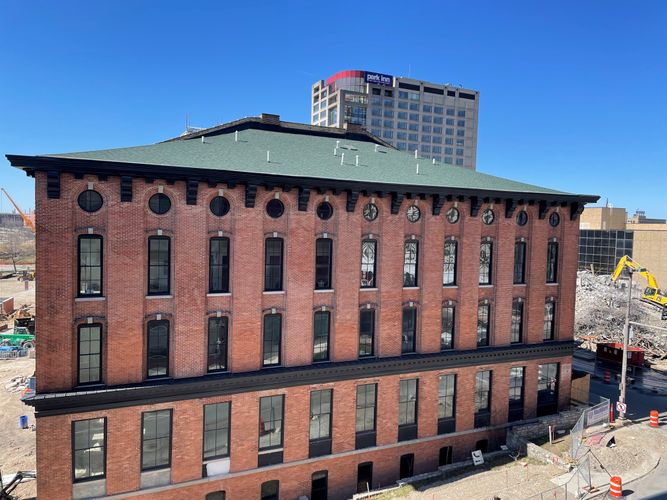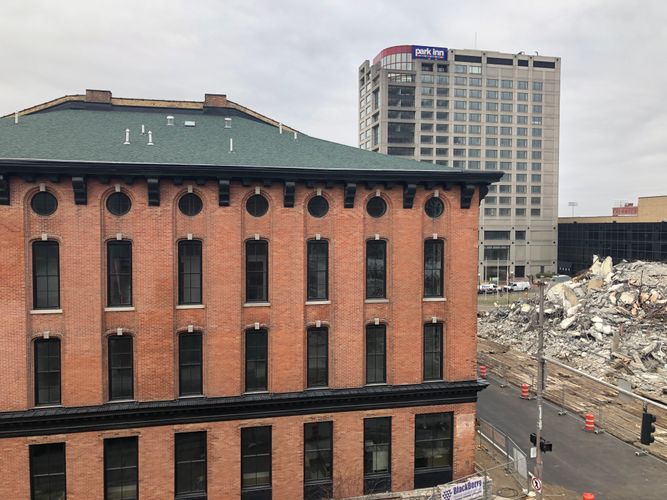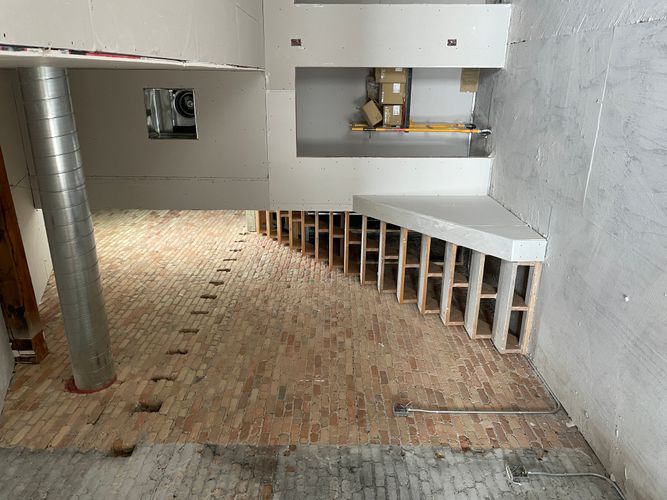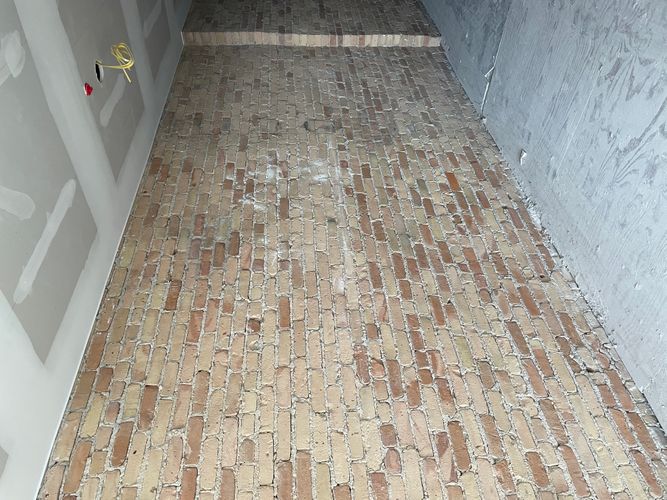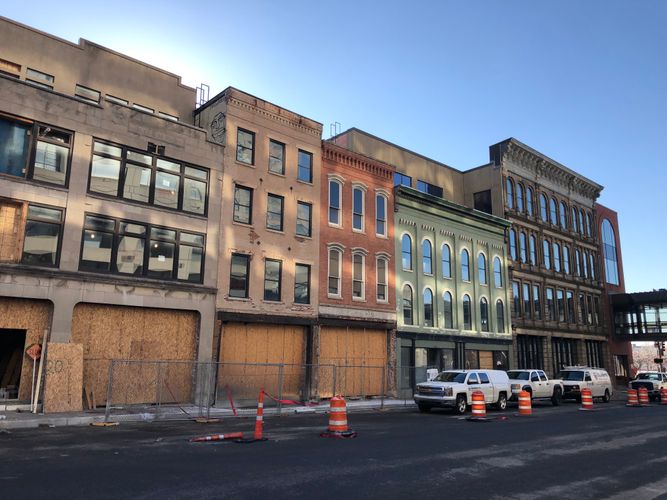Fort Industry Square
Toledo, Ohio
Fort Industry Square
Toledo, Ohio
General Contractor-Build Tech
Expected Completion Date-June 2022
Market-Residential, Entertainment, Retail
Scope of Work-interior framing, insulation, blocking, sheathing, finished drywall, and ceilings. The additional work scope included temporary framing as an elevator shaft was replaced, raising and leveling floors, adding floor joists, redesigning laminated beams and other basic modifications.
Fort Industry Square is a collection of riverfront buildings dating back to 1862 on a piece of property with great historical significance. The original fort was built in 1794 by General Anthony Wayne and occupied by US Troops until 1796. It is here that the Treaty of Fort Industry was signed on July 4, 1805 that opened the Firelands area to settlement. The original fort was replaced by 14 buildings built separately between 1862 and 1897. Two more buildings were added in 1987 and the majority of the older buildings renovated and connected via a hallway along their Summit Street entrances.
OCP was excited to be a part of the latest renovation of this property completed in June 2022 which combined these separate buildings into a unique setting of retail and office space as well living spaces as well as penthouse suites with private outdoor areas viewing the Maumee River and downtown Toledo. One 2 story office fit-out was completed simultaneous with renovations and others are following. The building is an eclectic mix of contemporary style with historic allure
OCP’s original work scope for this renovation was interior framing, insulation, blocking, sheathing, finished drywall, and ceilings. The additional work scope included temporary framing as an elevator shaft was replaced, raising and leveling floors, adding floor joists, redesigning laminated beams and other basic modifications. The expertise of OCP employees was a great asset to be able to meet the needs of this project. OCP foreman and management were essential at forecasting constraints, determining required materials, manpower and equipment and making recommendations for workflow to continue.




